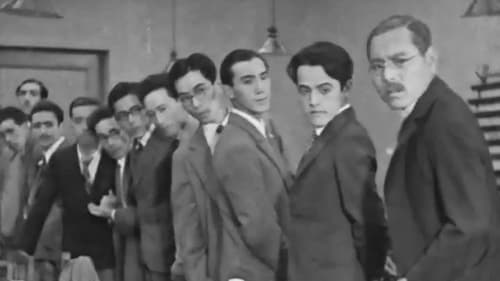Hideo Sugawara
Nacimiento : 1924-01-03, Hakodate, Hokkaido, Japan

Production Controller
The 9th series of Violence Action that depicts the battle between this issue and Ino aiming at the top of the gangster society as a unit.

Producer
The fourth of the extreme actions that depicts the men who are confronting the war set by the Kansai yakuza who are planning to advance to the Kanto region by taking advantage of the off-track betting dispute.

Living Things a film by Heinosuke Gosho

Boy taunting Tomio
Two Tokyo co-workers come across a destitute young lady in search of a place to live.

Ryoichi
La familia Yoshii se traslada a vivir a un suburbio de Tokio para que el padre esté más cerca de su trabajo. Los dos hijos deben adaptarse a la nueva escuela, pero se encuentran con la hostilidad de un grupo de chicos entre los que está Taro, el hijo del señor Iwasaki, jefe de su padre. Reacios a ir a la escuela, consiguen vencer en una pelea a la banda enemiga con la ayuda de un vendedor de licores. Al final se hacen amigos de Taro, y éste les enseña un vídeo en que su padre hace payasadas para complacer a su jefe, el padre de Taro. Los niños se enfadan con su padre y emprenden una original huelga infantil.

Daisaburō
This 1932 adaptation is the earliest sound version of the ever-popular and much-filmed Chushingura story of the loyal 47 retainers who avenged their feudal lord after he was obliged to commit hara-kiri due to the machinations of a villainous courtier. As the first sound version of the classic narrative, the film was something of an event, and employed a stellar cast, who give a roster of memorable performances. Director Teinosuke Kinugasa was primarily a specialist in jidai-geki (period films), such as the internationally celebrated Gate of Hell (Jigokumon, 1953), and although he is now most famous as the maker of the avant-garde silent films A Page of Madness (Kurutta ichipeji, 1926) and Crossroads (Jujiro, 1928), Chushingura is in fact more typical of his output than those experimental works. The film ranked third in that year’s Kinema Junpo critics’ poll, and Joseph Anderson and Donald Richie noted that 'not only the sound but the quick cutting was admired by many critics.

Sono Chounan
Mr. Omura, a teacher, leads a group of male students in an outdoor drill. One slight, comic young man, Shinji Okajima, has no shirt under his jacket; he scratches at fleas and makes faces behind Omura's back. Jump ahead several years, Shinji is married with three children. He sells insurance, and on the company's annual bonus day, he protests when an older worker is fired. Shinji loses his own job as a result, and he and his wife must find ways to cope. Lassitude, pride, the demands and needs of young children, and relationships from bygone school days all play a part in the outcome of their struggle.

Okabe es un agente de seguros que trabaja duramente para conseguir nuevos clientes. Adora a su hijo Susumu hasta el punto de que sería capaz de casi cualquier cosa con tal de satisfacerle. Susumu le pide un costoso aeroplano de juguete, y Okabe redobla sus esfuerzos para conseguirlo. Su empresa le ordena visitar el barrio en el que viven los Toda. (El hijo de Toda acaba de pelearse con Susumu.) Okabe acude a regañadientes y, al llegar, descubre que otro agente de seguros se le ha adelantado. Entablan una pelea, y la señora Toda, harta de sus bufonadas, despide a ambos. Okabe se sirve del hijo de Toda para convencer a la madre de que contrate una póliza. De repente, le llega la noticia de que su propio hijo, Susumu -quien no estaba asegurado-, ha sido arrollado por un tren. Cuando llega al hospital, se encuentra con su afligida esposa...






